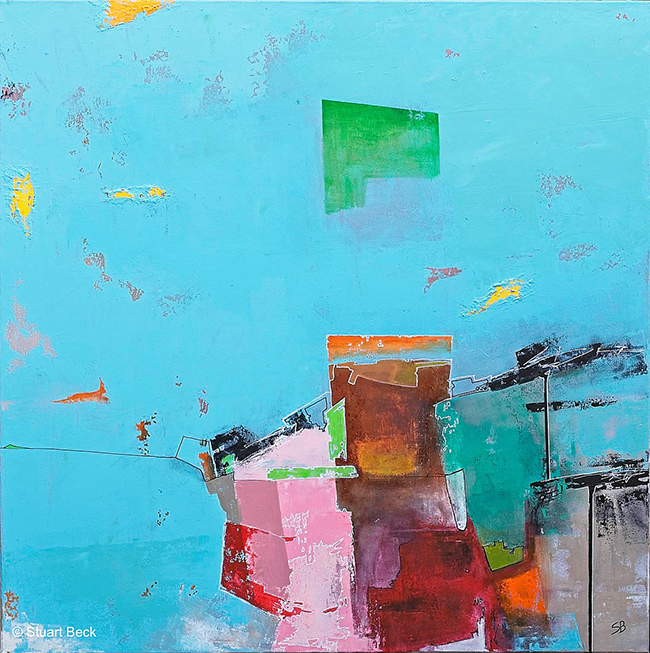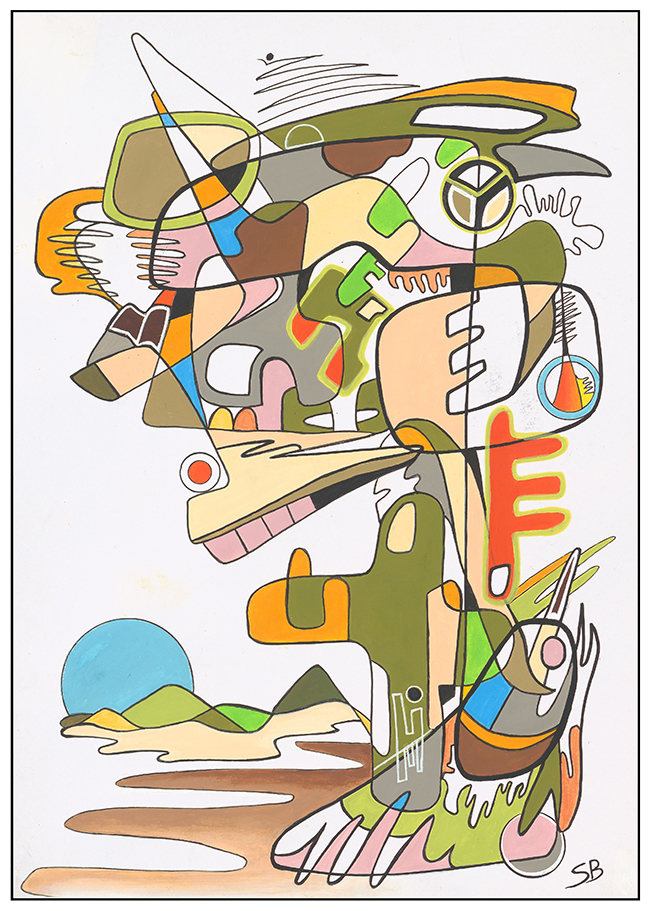Born in 1967 in Lancashire, UK, Stuart Beck has turned a lifelong passion for painting into a thriving artistic journey. Deeply influenced by the natural world, built environments, and the diverse cultures he has encountered, Beck’s abstract landscapes reflect his experiences and explorations. His father, a pivotal figure in his childhood, nurtured his early interest in art, setting the foundation for what would become both his profession and his purpose.
Beck’s work blends atmospheric textures and bold abstractions with a classical nod to traditional landscapes and seascapes. Among his influences, the works of J.M.W. Turner stand out, with their dramatic interplay of light and mood. Another source of inspiration came from the paintings of an earlier artist who shared his name, Stuart Beck (1903–2000), whose art he discovered online. These creative threads come together in Beck’s portfolio, which seamlessly combines timeless artistic elements with contemporary abstraction.

Beck’s approach to painting shifts depending on the mood or intention of the piece. His Untitled No. 18, for example, is an acrylic on canvas measuring 76 x 76 cm. This work exemplifies his expressive style, driven by an instinctive exploration of color and texture. “These untitled pieces are pure expression,” Beck explains. “There’s no set direction—they evolve as I paint.” The result is an unrestrained dialogue between the artist and his materials, where the process itself shapes the outcome.
In contrast, pieces like Humankind, Destroyer of Worlds reflect a more deliberate and focused process. Created with acrylic on paper, this work explores themes of environmental degradation and humanity’s relentless pursuit of profit. Beck’s title alone is a poignant commentary on contemporary concerns, and the painting’s intricate details challenge viewers to confront the urgency of these issues. This balance of artistry and messaging underscores Beck’s ability to infuse his work with both beauty and meaning.
Teaching plays a significant role in Beck’s life. As a local art instructor, he guides students in discovering their creative voices, emphasizing experimentation and the acceptance of imperfection. For Beck, teaching isn’t just about imparting knowledge—it’s a mutual exchange of ideas. “My students’ work often surprises me and pushes me to reconsider my own methods,” he says. This interplay keeps his art dynamic and constantly evolving.

In 2019, Beck began selling his paintings and participating in exhibitions across the UK. Whether through his abstract pieces or his more intricate thematic works, Beck has developed a reputation for versatility. His art appeals to collectors who appreciate its depth and adaptability, as well as those commissioning custom pieces that reflect their personal stories.
For Beck, painting is a journey of discovery. Whether exploring textures in an abstract landscape or meticulously crafting a piece with deeper thematic resonance, he approaches every canvas with curiosity and openness. His art bridges traditional influences and modern techniques, creating works that feel timeless yet distinctly contemporary.
As he looks toward the future, Beck remains committed to balancing creativity with sustainability. He continues to experiment with new methods and materials, pushing the boundaries of his craft. Through his teaching, and exhibitions, he aims to inspire and engage even more people with his vision.
Stuart Beck’s art encourages reflection and connection. His abstract landscapes, marked by dramatic skies and emotive textures, invite us to explore not only the world around us but also our own inner landscapes. For Beck, the power of art lies not just in its ability to be seen but in its ability to be felt.

